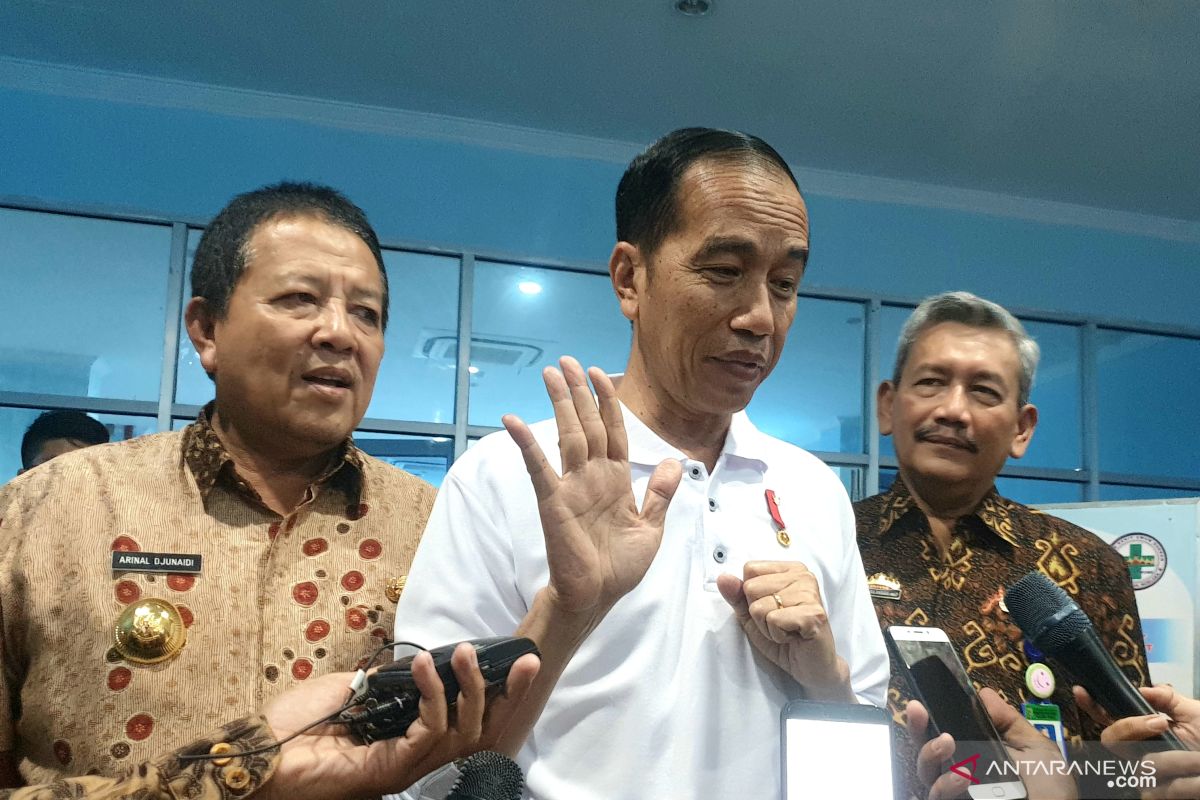"Once again, the BPJS should improve its management," the President Jokowi remarked after an impromptu visit to Abdul Moeloek Hospital in Bandar Lampung, Friday, to observe the BPJS Kesehatan services in the hospital.
President Jokowi attributed BPJS Kesehatan’s deficit to mismanagement since several independent participants were unable to foot the premium.
Baca juga: President Jokowi's family welcomes baby girl from Gibran Rakabuming Raka
The discipline for payment of the premium should be intensified to help curtail the agency's deficit.
Earlier, Deputy Finance Minister Mardiasmo revealed that BPJS Kesehatan's deficit was caused by the inability to pay the premium, particularly among participants of the non-wage recipients scheme (PBPU).
Only half of the 32 million PBPU participants had paid the premium, he stated.
Baca juga: President Jokowi inaugurates 189-km Trans-Sumatra Toll Road Lampung-South Sumatra
Some 96.6 million poor families are participants of the PBI whose premiums had been fully subsidized by the government, while some 37.3 million other participants subsidized by local governments used the regional budget.
The National Health Insurance (JKN) program has, on an annual basis, continued to suffer deficit that had reached Rp1.9 trillion in 2014, Rp9.4 trillion in 2015, Rp6.7 trillion in 2016, Rp13.8 trillion in 2017, and Rp19.4 trillion in 2018.
To cover the deficit, the government has injected Rp5 trillion in state capital participation in 2015 and Rp6.8 trillion in 2016, in addition to budget expenditure allocation of Rp3.6 trillion in 2017 and Rp10.3 trillion in 2018.
Finance Ministry’s spokesman, Nufransa Wira Sakti, remarked that without a hike in its premium rate, the JKN deficit will continue to swell to touch Rp32 trillion in 2019, and it is forecast to reach Rp44 trillion in 2020 and Rp56 trillion in 2021.
The government has doubled the premium for the first-class service to Rp160 thousand (US$11) monthly per person and more than doubled the premium for the second-class service, from Rp51 thousand to Rp110 thousand.
The premium for the third-class service that entails coverage of fully subsidized low-income participants was increased 64 percent, from Rp25,500 per person per month to Rp42 thousand. The new premiums will come into effect in January.









